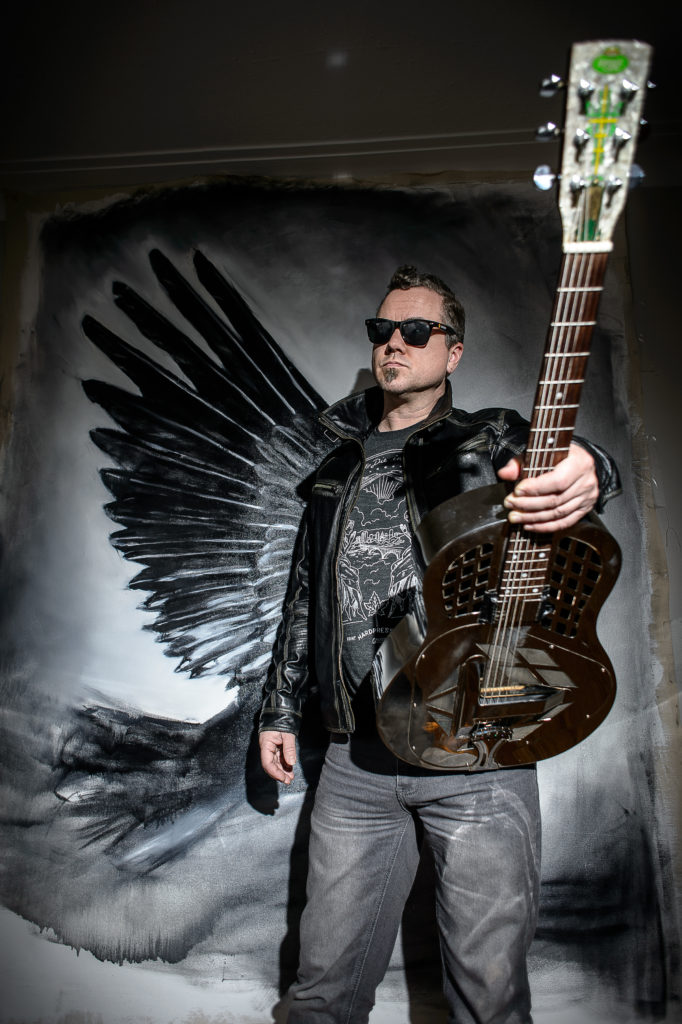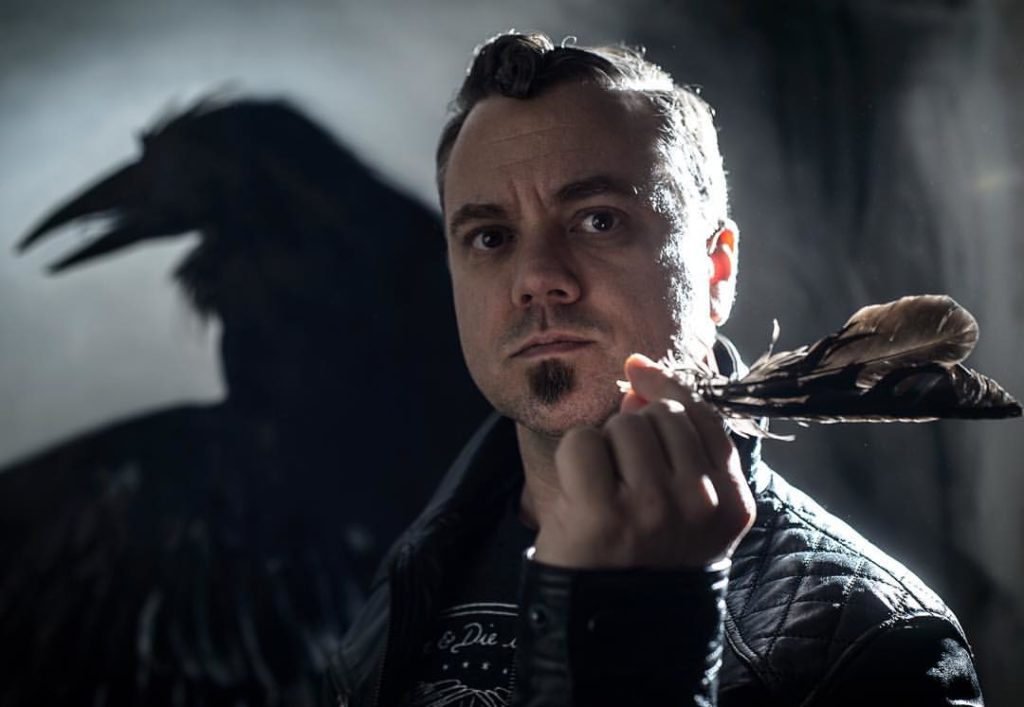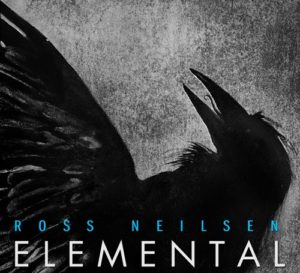Ross Neilsen’s latest album tackles predictability through humble conjecture.
Matt Carter

Music is a tough business. Besides politics and maybe professional sports, there are few other career paths that place your personal performance, your ideas and your own unique vision before the masses to critique and pick apart. Everybody has an opinion on so-and-so’s latest album much like they do on the actions of the Prime Minister or a national hockey team. As an artist, that’s a tough place to be. Even though art is supposed to be a limitless exploration of one’s self, it’s often the audience who truly dictate the acceptable boundaries through which one can move. And it takes a true artist to recognize this and move past it.
On his latest release, Elemental, Ross Neilsen purposely sidestepped his own self-imposed boundaries and offered up his latest collection of songs to a hand picked group of peers to explore, interpret and develop. In short, he set his ego aside and let others decide the best path to follow.
The process that led to Elemental found it’s footing in a conversation with friend and fellow Canadian musician Darcy Yates while he was in Fredericton performing with Bahamas. Yates shared his belief that both he and Neilsen were on the brink of something with regards to their own personal projects – success or failure. “He pointed out that both of us need to make our next albums the best album of our careers,” said Neilsen. Yates then extended an offer to join Neilsen on his next project when the time came, an invitation that would not go unanswered.
Whether or not he felt his next album would be his career defining work, Neilsen already had an idea in mind. He knew he wanted to try something different and had originally conceived his next project to be a solo acoustic album. With that in mind, he created a wish list of producers and began making calls, because that’s how he has always done it.
Steve Dawson and Colin Linden where at the top of his list. These are some pretty big names as far as Canadian music goes but Neilsen has never been one to be intimidated by someone else’s fame or notoriety. This fearless approach to reaching out is how he came to work with musicians like Cody and Luther Dickinson, Alvin Young Blood Hart and Anders Osborne.
This initial step in the process, trying to secure a producer for the project, can easily be noted as the first of several turning points in the creation of the album. Conversations began and ended and started again before Neilsen decided maybe he was looking in the wrong place, or to the wrong people for what he wanted to achieve. “I didn’t want to put myself out there and pay all this money to work with someone who wasn’t going to be totally invested in what we were doing,” said Neilsen. “I had this vision of Colin taking calls from Bob Dylan’s manager or watching the clock because he had to leave for his next appointment. I’m not saying that that’s how that would have gone down, but Colin’s an incredibly busy guy and it did get me thinking that maybe this wasn’t the right direction for what I was trying to accomplish with this project.”
The idea of connecting with ‘the connected’ in hopes of furthering his career through simple means of association has faded over time for Neilsen. Over the course of his career, he discovered that while working with some of the best in the business could be a great experience on several levels, it didn’t necessarily equate to creating a successful piece of commerce.
“I’ve used musicians in the past because I like what they do and their influence on me,” said Nelisen, “but I have tricked myself into thinking that it’s going to help businesswise by having that name on my album and my experience with that is that that is not the case.”
Having already been there and done that with little to show for it besides a great recording, he figured maybe it was time to look a little closer at the friends he has made over course of his career.
“I never got any more business or had doors open up by using quote-unquote, famous people, so I had to really be honest with myself and ask myself why I want to work with someone. Is it because I’m into their music or because I simply want to play with them? Is it an ego thing? In the end, I decided that maybe the decision to work with some people is rooted in the wrong area, at least for this particular project.”
That’s when Neilsen remembered a conversation he had with his friend Steve Marriner, a member of the Ottawa-based blues trio MonkeyJunk. “Years ago Steve had mentioned his interest in producing an album,” said Neilsen. “I think the way he put it was that he’d be interested if I would ‘let him’.”

It was also around this same time that Neilsen remembered his friend Jim Bowskill.
“When my original idea shifted, I was formulating a backup plan thinking who I know that plays pedal steel, mandolin and guitar. Well, Jim Bowskill does, so I called him up and he was in.”
With Bowskill, Marriner and Yates locked down, Neilsen booked some time in the studio and coordinated everyone’s schedules to get things happening. “I realized I had this really diverse team among three guys who could cover a lot of ground on a lot of instruments. At the time I was still envisioning this to be a solo acoustic record so between these guys we had everything I needed including upright bass.”
This is where things took yet another unexpected turn.
“The first track we started working on was track eight, The Race,” said Neilsen. “Steve was playing drums and we were working this R&B idea he had, but we couldn’t quite settle into a groove. From the get-go, Steve told me that if he wasn’t cutting it behind the kit, he had no problems exploring other options.”
After a working the tune for the better part of a day, the group decided to call in a drummer, so in came MonkeyJunk’s Matt Sobb. He was behind the kit working ideas less than two hours after receiving the call.
“In the studio you can do two things,” said Neilsen. “You can resist, and waste time and money, or you can give in and try ideas. I tend to be the more adventurous type and enjoy trying stuff out. When Matt showed up we knocked the tune out right away and I think we even knocked two more out later than night.
“Calling Matt into the session was a real turning point,” said Neilsen. “I think it immediately pushed the album more towards a band sound which was the polar opposite of what I had originally intended, but it was exciting and it was sounding good so I just kind of went with it.”
And from there, things just started rolling. Ideas started flowing and many of the songs began to take on a whole new life. Elemental is about as far removed from a solo acoustic album as one could ever hope to get. But in the end, Neilsen appears to have got what he wanted, treading a lot of new ground and openly welcoming sounds he may have resisted in the past.
“Making Elemental was one of the most enjoyable experiences I’ve had as a producer,” said Steve Marriner, looking back on the project. “Ross and I have been friends since 2005, so I wanted to do everything I could to make him the best record possible. He put his trust in me more than any other artist I’ve produced, which is supremely helpful in creating a great working relationship.”
For this listener, the album sounds very much like a personal reflection. Like a musician looking back on their life in music with all the pitfalls, the tough decisions, the successes and heartache. From start to finish, Elemental sees Neilsen evolve from the musician we all thought he was, only to become the musician we all knew he could be. It starts in familiar territory and quickly branches out to reveal a side of his songwriting that he’d somehow kept hidden away, or maybe he was just waiting for the right combination to help see it through.
 “I think we achieved exactly what we set out to do,” said Marriner. “We made a record that showcases the breadth of Ross’ influences and allowed him to explore some new sonic territory he had yet to previously. We assembled a great team of musicians, all of them friends of mine or ours already, so the vibe at the studio was very chill and familiar. Lots of laughs and lots of goofing around. A great environment for creativity. Everybody’s performance was inspired and contributed immensely to the project. In the end, we created a record that is both sensitive and fierce.”
“I think we achieved exactly what we set out to do,” said Marriner. “We made a record that showcases the breadth of Ross’ influences and allowed him to explore some new sonic territory he had yet to previously. We assembled a great team of musicians, all of them friends of mine or ours already, so the vibe at the studio was very chill and familiar. Lots of laughs and lots of goofing around. A great environment for creativity. Everybody’s performance was inspired and contributed immensely to the project. In the end, we created a record that is both sensitive and fierce.”
One of the most moving tracks on Elemental is the album’s closer, Step into the Light, a song that comes across more honest and heartfelt than any song Neilsen has ever recorded. Surprisingly, it’s also a song that almost didn’t make the cut, saved only by Marriner’s ear and his ability to reveal something in a song that others, including the songwriter, might have overlooked.
“Before we got started I sent Steve everything I had been working on including unfinished ideas and half songs,” said Neilsen. “I sent everything and he wrote back to tell me that particular song was one of his favorites from everything I sent.”
“Ross came with the song mostly complete and we just changed a chord or two to make it even more emotional,” said Marriner. “The lyrics are a beautiful melancholy and I think we created a nice vehicle to deliver them. Jimmy Bowskill is a star on this track, having performed all the strings, acoustic guitar and pedal steel as well.”
In many ways, Step into the Light could be the song of Neilsen’s career. It’s a song about letting go and a song about how sometimes the things we love can also be the things that holds us back from experiencing something greater.
“It’s very much the lighter waving song of the record. It’s the one that gives me the goosebumps,” said Marriner. “Once we mixed it, there was a moment when Ross and I were listening to it in the studio very loudly and we both got choked up, even after we’d listened to it a million times. That’s when you know you’ve got something. I really hope other people can feel it too.”
So, when all is said and done, has Neilsen created the record of his career? Was he able to accomplish such an ambitious goal? And will he continue to retain the title of ‘the hardest working man in Canadian blues music’? As it turns out, none of that really matters to him. He’s already accomplished so much and at this point in his career, he’s just happy to make music he enjoys. Anything further that may come of it is just a bonus.
“I like doing shows and I like traveling but I don’t want to do shows just because I need to make a couple hundred bucks,” he said. “My days of doing 200 dates a year are definitely over. I enjoy the place I’m at currently in life too much to want to fuck with it by touring most of the year.
“All these descriptors, all these adjectives, all these titles we carry as artists are for other people to describe some sort of public persona,” he said. “It has nothing to do with who I am or who you are. In reality, there is really only a handful of people in the entire world who know that and it’s not anyone who writes for a paper, who announces on the radio or someone who puts on a show or a festival. It’s your close friends and those are the people who understand you for who you truly are and they will always be happy and supportive of your success whether it has to do with music or not.”
Ross Neilsen | Web | Facebook | Twitter




